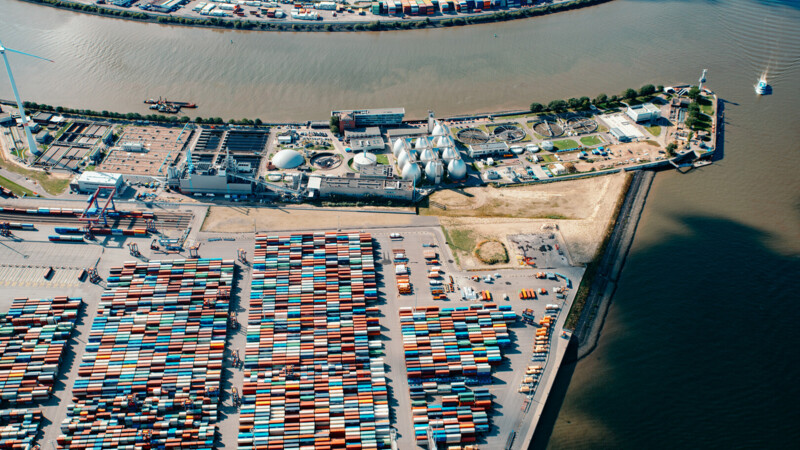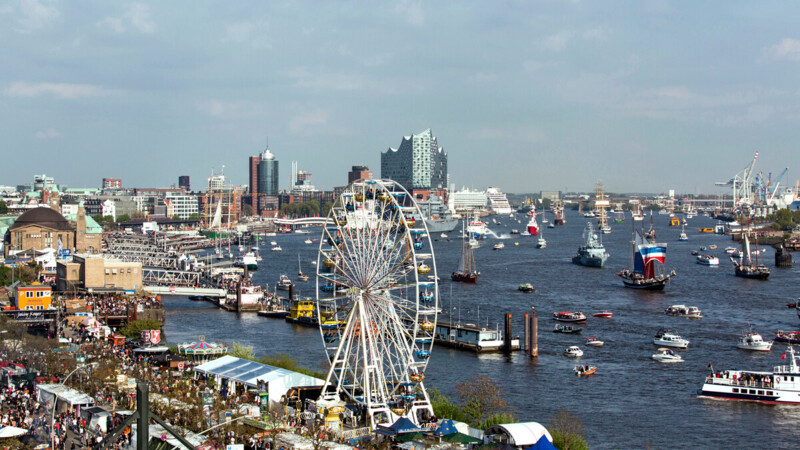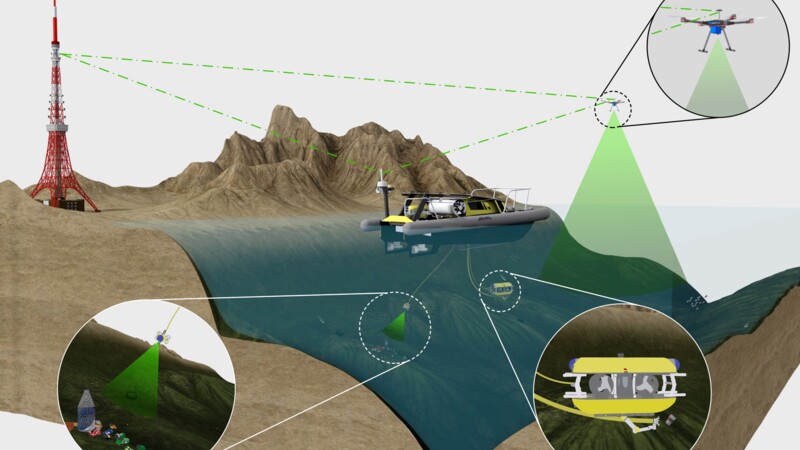"Although we do not have the challenge of having to salvage large quantities of plastic waste from the Elbe in Hamburg, the port does offer ideal conditions for testing the SeaClear system," said Jens Meier, CEO of the Hamburg Port Authority (HPA). "The Elbe's turbid waters, the tidal currents and the shipping traffic pose special challenges for the system. These tests are an important experience in the use of autonomous systems." During the week-long tests, prepared samples of waste particles will be lowered to the seabed. The diving robots will then record and mark the findings on a map of the area.
International researchers including Hamburg Fraunhofer CML testing diving robots to fight plastic waste
Tests of the "SeaClear" system that identifies and collects plastic waste on the ocean floor are underway in real conditions in Hamburg's Hansa Harbour. Presented at last year's ITS World Congress in Hamburg, the system consists of an autonomous ship and two underwater robots.
Port offers "ideal conditions" for diving robots
Several research institutions involved
HPA, the Fraunhofer Center for Maritime Logistics and Services (CML), the Delft University of Technology, the Dubrovnik Regional Development Corporation, Subsea Tech SAS, the Technical University of Cluj-Napoca, the Technical University of Munich and the University of Dubrovnik are among those researching the SeaClear system, which launched in January 2020. The project is being funded by the EU and runs through late 2023.
tn/sb/pb
Sources and further information
More
Similar articles

HHLA launches hydrogen innovation cluster

Environment-friendly heat for Hamburg's new suburb Oberbillwerder

Port of Hamburg anniversary celebrations return to month of May
